A deep dive into real-life Legionella disasters (and how to avoid being the next headline).
When organisations cut corners on water safety, the consequences can be devastating, not just for those who fall ill, but for the businesses and individuals held responsible. While Legionella management might seem like just another regulatory burden, the real-world implications of negligence extend far beyond mere compliance issues.
In this blog post we’re diving into how Legionella oversights have transformed into costly legal nightmares, ruined reputations and even ended careers.
The Legal Landscape: A Perfect Storm
Legionella-related litigation creates a particularly challenging legal environment for several reasons:
- Strict liability standards: You don’t need to have intended harm to be found legally responsible.
- Dual legal exposure: Cases typically involve both criminal prosecution by regulators and civil claims from affected individuals.
- Documentary evidence: Your own records (or lack thereof) often provide the strongest evidence against you.
- Personal liability: Directors and managers can face individual prosecution, not just corporate entities.
- Public interest: These cases attract significant media attention, amplifying reputational damage.
Landmark Cases: When Water Safety Goes Wrong
The Stafford Hospital Tragedy
In 2012, Stafford Hospital faced intense scrutiny after an elderly patient died from Legionnaires’ disease contracted during his hospital stay. The subsequent investigation revealed systematic failures:
- Temperature monitoring records were falsified
- Routine maintenance was repeatedly skipped
- Staff lacked proper training in Legionella control
- Previous recommendations from consultants were ignored
The NHS Trust received a £100,000 fine, but the reputational damage was incalculable. Senior managers lost their positions and the case contributed to broader investigations into care quality at the hospital.
The G4S Corporate Housing Disaster
A major facilities management company found itself in court after Legionella was discovered in multiple residential properties they managed. The investigation uncovered:
- Risk assessments conducted by unqualified personnel
- No implementation of recommended control measures
- Incomplete monitoring records
- Failure to address known issues in multiple properties
The company faced a £1.8 million fine, plus civil claims from affected residents. Their contract with the local authority was subsequently terminated.
The Edinburgh Outbreak
One of the UK’s largest community outbreaks occurred in Edinburgh in 2012, with 92 confirmed cases and four fatalities. The source was ultimately traced to cooling towers at a distillery. Legal consequences included:
- A £400,000 fine for the parent company
- Multiple civil claims totalling over £6 million
- Criminal charges against individual managers
- Significant remediation costs and business interruption
The case established important precedents regarding the standard of care expected in cooling tower maintenance.
When the Lawyers Get Involved: The Litigation Process
Understanding how Legionella cases unfold helps illustrate why prevention is infinitely preferable to litigation:
The Investigation Phase
Following a suspected Legionella case linked to your premises, expect:
- Unannounced site inspections by health authorities
- Seizure of maintenance records and documentation
- Interviews with staff and management
- Water sampling throughout your systems
- Potential closure of facilities during investigation
This phase alone can cause significant operational disruption and immediate financial impact.
The Criminal Proceedings
Health and Safety Executive (HSE) prosecution typically involves:
- Formal interviews under caution for responsible individuals
- Detailed analysis of compliance history
- Assessment of management systems and procedures
- Consideration of aggravating factors (such as previous warnings)
- Charging decisions based on evidence gathered
Sentencing guidelines now link fines to organisation turnover, meaning penalties routinely reach six or seven figures.
The Civil Claims
Affected individuals may pursue separate civil action seeking compensation for:
- Medical expenses and ongoing care costs
- Loss of earnings
- Pain and suffering
- Psychological impact
- Wrongful death (in fatal cases)
These claims often follow successful HSE prosecutions, using the criminal verdict as leverage. Multiple claimants may join together in group litigation, substantially increasing potential liability.
The Financial Impact: Beyond Just Fines
The true cost of a Legionella outbreak extends far beyond the headline penalty figure:
Direct Costs
- Regulatory fines (potentially millions)
- Legal representation (both criminal and civil)
- Civil compensation to victims
- Investigation and remediation expenses
- Business interruption during closure
Indirect Costs
- Insurance premium increases
- Increased regulatory scrutiny going forward
- Staff time diverted to legal matters
- Management replacement and recruitment
- Training and system improvements
Reputational Damage
- Loss of contracts and business opportunities
- Customer confidence erosion
- Media coverage and public scrutiny
- Share price impact for listed companies
- Recruitment challenges
Many organisations find the indirect and reputational costs ultimately exceed the direct financial penalties.
Common Legal Failings: What Gets Organisations in Trouble
Certain patterns repeatedly emerge in Legionella litigation:
Documentation Deficiencies
Courts expect comprehensive records demonstrating proper water management. Common failings include:
- Missing or incomplete monitoring records
- Outdated risk assessments
- No written scheme of control
- Lack of staff training documentation
- Failure to record remedial actions
As the legal adage goes: “If it isn’t written down, it didn’t happen.”
Ignoring Expert Advice
Many prosecuted organisations had previously received warnings:
- Consultant recommendations not implemented
- Internal audit findings disregarded
- Staff concerns dismissed
- Previous minor incidents not addressed properly
- Budget requests for remedial work denied
These create a devastating paper trail showing awareness of problems but failure to act.
Management System Breakdowns
Organisational failures frequently underpin individual mistakes:
- Unclear responsibilities and accountability
- Inadequate resources allocated to water safety
- Poor communication between departments
- Lack of oversight and verification
- Failure to review effectiveness of controls
Prosecutors target these systemic issues to demonstrate institutional negligence.
The Human Cost: Beyond the Balance Sheet
While financial and legal consequences are significant, the human impact of Legionnaires’ disease provides the most compelling reason for proper water management:
- Mortality rates range from 10-15% in most outbreaks
- Higher fatality rates (up to 30%) in vulnerable populations
- Survivors often face long-term health issues
- Healthcare costs and personal suffering are substantial
- Communities experience lasting trauma from significant outbreaks
No financial calculation can truly account for these human consequences.
The HCS Approach: Prevention Through Expertise
At HCS Water Treatment, part of Premier Technical Services Group Ltd (PTSG), our 30+ years of experience has taught us that effective Legionella management isn’t just about compliance, it’s about comprehensive risk management that protects both people and organisations.
Our approach is built on four essential pillars:
- Innovation: Deploying advanced monitoring and record-keeping systems that provide robust evidence of compliance
- Expertise: Drawing on decades of experience across sectors to identify and address risks before they escalate
- Systems: Implementing comprehensive water safety programmes that address both technical and management aspects
- People: Training your team to understand their responsibilities and perform them consistently
We’ve helped numerous organisations transform their water safety approach from reactive to proactive, even after they’ve experienced regulatory scrutiny or incidents.
Creating a Defensible Position: Best Practices
While no approach guarantees immunity from litigation, implementing these practices creates a strong defensive position:
Demonstrate Due Diligence
- Maintain comprehensive, accurate records of all water safety activities
- Implement a clear written scheme of control
- Ensure prompt response to identified issues
- Document management review of water safety performance
- Invest in regular staff training and competence verification
Establish Clear Accountability
- Formally appoint competent persons with specific responsibilities
- Ensure adequate resources are available for water safety
- Maintain clear communication channels for reporting concerns
- Include water safety in management review processes
- Verify task completion through robust supervision
Prioritise Continuous Improvement
- Review and update risk assessments regularly
- Learn from minor issues before they become major problems
- Stay current with evolving best practices and guidance
- Benchmark your performance against industry standards
- Conduct periodic independent audits of your water safety management
These practices not only reduce the likelihood of an outbreak but also demonstrate the “all reasonable precautions” defence that can protect organisations and individuals if incidents do occur.
The Bottom Line: Prevention vs. Litigation
When you compare the cost of comprehensive Legionella management with the potential consequences of an outbreak, the conclusion is inescapable: prevention isn’t just safer, it’s significantly more cost-effective.
Consider this simple comparison:
Annual investment in proper Legionella management: £5,000-£20,000 for a typical commercial building (risk assessment, monitoring, maintenance and treatment)
Potential cost of a Legionella outbreak: £500,000-£5,000,000+ (fines, legal costs, compensation, remediation and reputational damage)
The return on investment in prevention becomes obvious when framed this way.
Don’t let your organisation become the next cautionary tale. Contact HCS Water Treatment today on 0141 212 7247 or email us at enquiries@hcsuk.org to discuss how our expert team can help you implement a robust, defensible Legionella management programme that protects both people and your organisation.


